The highest mountain peak of Wayanad, Chembra Peak is 2,100 m above sea level. Lush green valleys, tea plantations and hills surround the peak. To maintain its originality and natural surroundings, the local forest department protects the place. Chembra Peak trekking is organised by the department and offers a mesmerising walk through the mist-covered views, tea plantations, and a walk among the clouds on an overcast day. The trek is known for the refreshing escape it provides amid the local flora and fauna and an unforgettable visit to the heart-shaped lake of Chembra.
Quick Details About Chembra Peak Trekking
Timings: 7 AM – 5 PM
Booking Charges: ₹750 for a group of 10 or fewer people, ₹1500 for a group of 5 or fewer people
Entrance Fee: ₹20 for Indians, ₹30 for foreigners, ₹15 for students
Camera Fee: ₹40 per camera
Forest Office To Starting Point Distance: 2.2 km
Distance Till Chembra Lake: 2 km
Distance From Chembra Lake To Chembra Peak: 1.5 km
Location
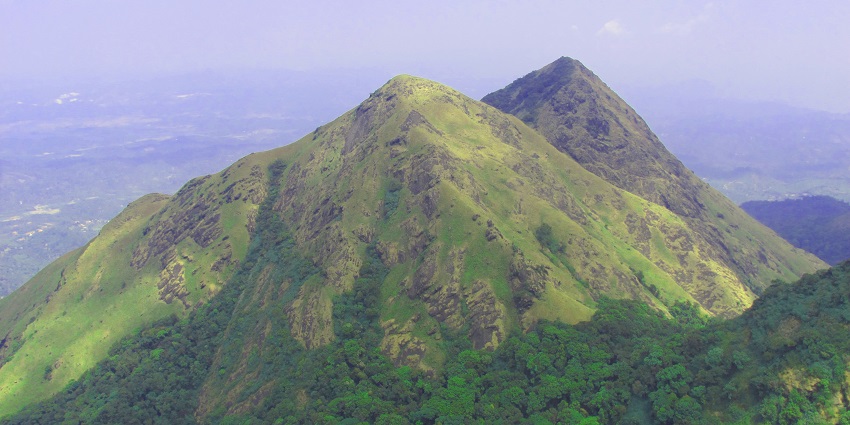
Photo: Aneesh Jose / Wikimedia Commons
The Chembra Trekking route is one of the most famous trekking expeditions of Kerala. The trek takes you to the Chembra Peak which is located at an altitude of over 6,890 ft above sea level. It is located around 35 km away from Wayanad in Kerala in the Western Ghats mountain range.
Suggested Read: Hop On To The Fascinating Peaks For A Thrilling Experience Of Trekking In Kerala
How To Reach

Photo: Pixabay / Pexels / Image For Representation Only
By Air: The nearest airport is Calicut International Airport located 100 km away. This airport has both domestic and international flight connectivity. Chembra Peak is located around 35 km away from Wayanad. One can take a bus to reach Meppadi or Kalpetta from where one can board a trekking jeep that takes him or her to the starting point of the trek.
By Rail: The nearest railway station is in Kozhikode located 100 km away. This major station has complete connectivity to the rest of India through its rail network.
By Road: One can take a car, taxi or bus to Wayanad from most of the nearby towns and cities of Kerala.
Best Time For Chembra Peak Trekking
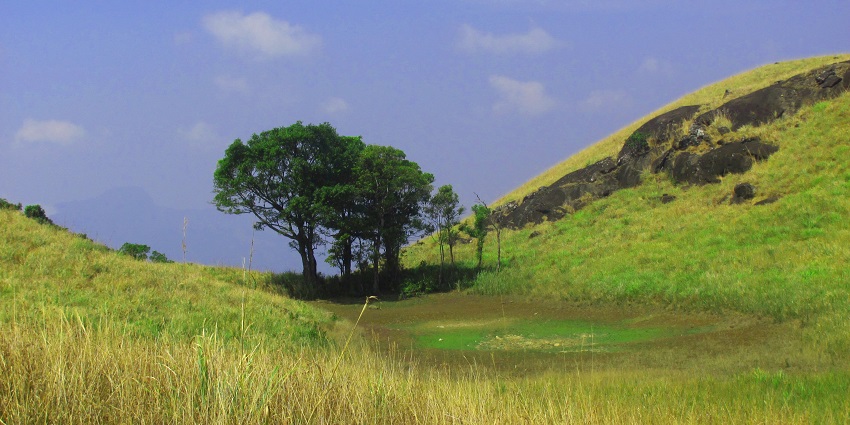
Photo: Aneesh Jose / Wikimedia Commons
One can go for this trek throughout the year except in monsoons when rains make the track dangerous and slippery. Trekking in summer can also be exhausting as the weather is highly humid. The best time for indulging in this trek is during the winter season from November to February when the weather is cool and the environment is green. The trek is best enjoyed in the cool dewy air of early morning.
Suggested Read: Everything You Want To Know About The Meesapulimala Trekking Experience
Trekking Information
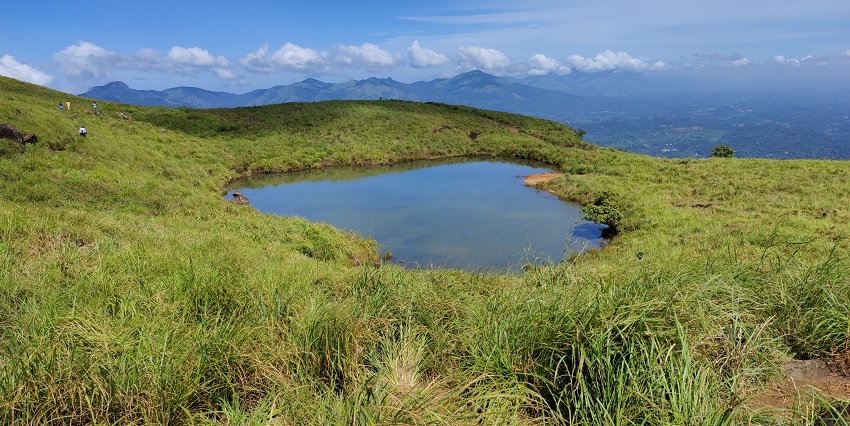
Photo: Ravi Dwivedi / Wikimedia Commons
The Chembra Peak trekking can be divided into 3 main parts:
Forest Office To Starting Point: Covering a distance of 2.2 km, this section of the trek takes about 2-2.5 hours. One can either start the trek from the forest office itself or drive their car up to the Watchtower to start their trek. During this section, one passes through rolling green gardens and expansive tea estates that fill the environment with their fragrances. After around 2 km on the road, one can find parking space for their vehicles.
Starting Point To Heart Lake: From the parking space, the trek starts through a rolling tea garden located on the right. The starting part of the trek is pretty easy. After a point, the trail enters into a forest and overgrown grassland area. This part of the trail is moderately difficult with a straight way and lesser chances of getting lost. After another half an hour or so, the trek takes a steep turn under direct sun passing amidst 5 ft long grass. After some time, one reaches the heart-shaped Chembra Lake, also known as Hridaya Thadakam.
Heart Lake To Chembra Peak: The trek to Chembra Peak is prohibited now due to excess wildlife activity on the trail. The descent to the forest department office is done on the same trail one goes through.
Places To Visit During Chembra Trekking
In addition to the enormous and unsurmountable-looking Chembra peak, There are a few other attractions located along the trail worth experiencing:
1. Chembra Lake
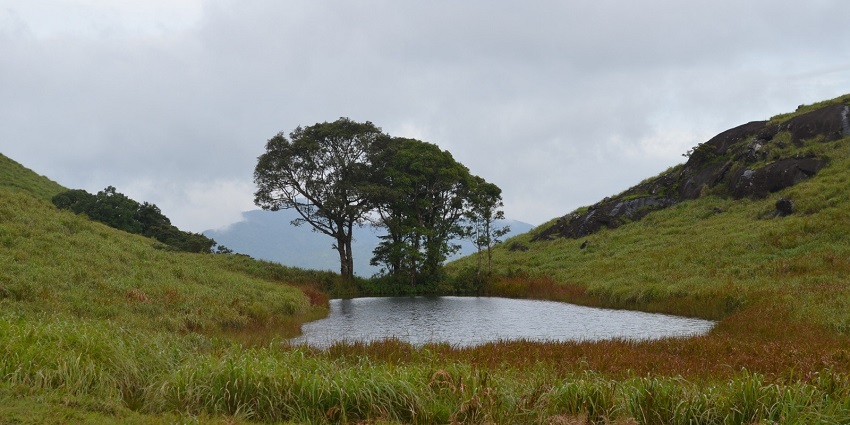
Photo: Jaseem Hamza / Wikimedia Commons
Featuring the shape of a heart, Chembra Lake has an untouched charm for nature lovers. The region is offbeat and the surroundings drip with tranquillity. The lake has pristine blue waters that are sure to entice any traveller to take a dip. According to local lores, the water of the lake has healing properties and offers spiritual respite to all those who bathe in it.
Timings: 7 AM – 5 PM
Suggested Read: Sabarimala Traditional Trekking Path
2. Banasura Sagar Dam
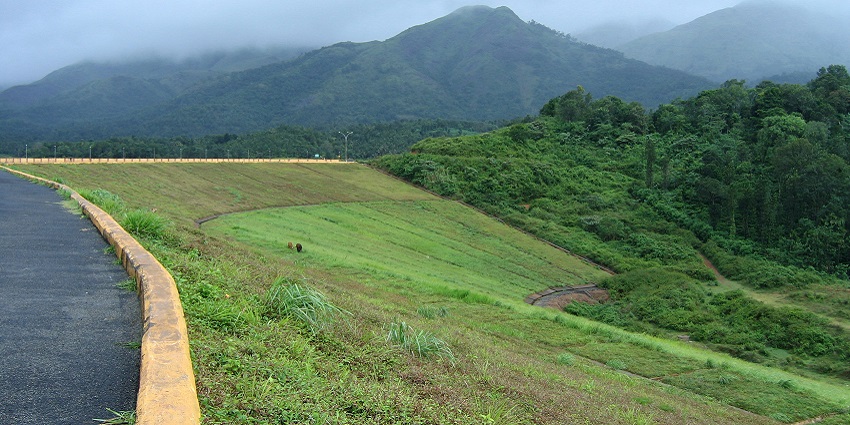
Photo: Vinayaraj / Wikimedia Commons
Perched across the Karamanathodu River is the Banasura Sagar dam that falls on the way to Chembra Peak. This river is a tributary of the Kabini River. This dam is also famous for being the largest Earth dam in India and the second biggest in Asia. The place is also home to several water sports festivals. The place also houses the first floating solar power plant operating in India. Standing at a height of 38.5 m, this dam is also known as the Kuttiyadi Augmentation Main Earthern Dam.
Timings: 9 AM – 5 PM
Where To Stay
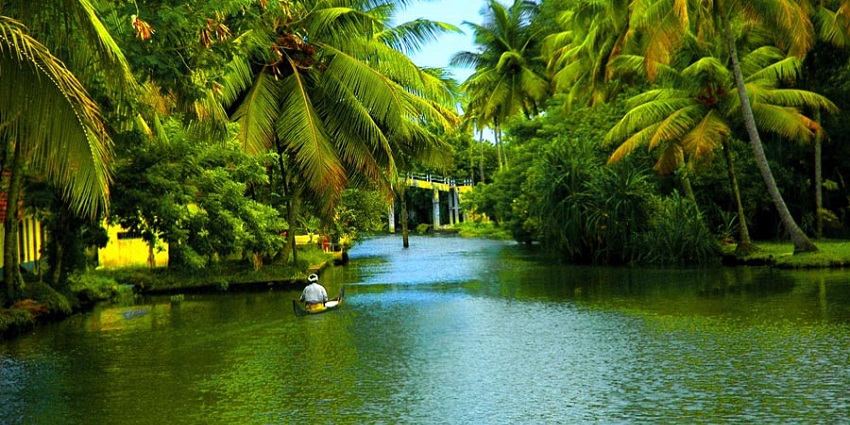
Photo: Sarungeorgesunny / Wikimedia Commons / Image For Representation Only
There are many homestays and resorts located near the base of the Chembra Peak where one can book accommodation. Some popular options for the same are Woodrose Resort, Vyithri Resort, Marsim Holiday House, and Three Roots House.
Suggested Read: Top Zoos In Kerala To Look Out For An Amazing Experience
Tips For Travellers
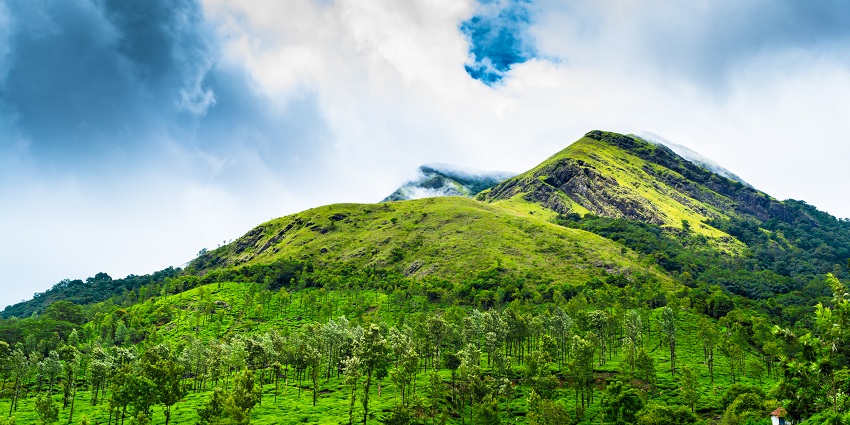
Photo: Karkiabhijeet / Wikimedia Commons
- Only 200 people are allowed by the forest department to trek in a single day.
- People suffering from health problems should avoid this trek.
- Always carry your ID proof.
- Always trek with a group of people.
- Carry plenty of water and some snacks but avoid littering the area.
- Always return to the base before sunset.
- Always wear the right trekking shoes and carry trekking poles for balancing and support.
Chembra Peak Trekking is an offbeat activity that you would love to indulge in. The adventure and charm of traversing through green grasslands and capturing the forestry surroundings. The verdant vicinity of wildlife activities makes it a mysterious and exciting excursion. Plan your next trip to Kerala with your loved ones with TripXL and enjoy a refreshing nature escape.
Cover Photo: Robin S Kishore / Wikimedia Commons


 WhatsApp
WhatsApp
 Twitter
Twitter









